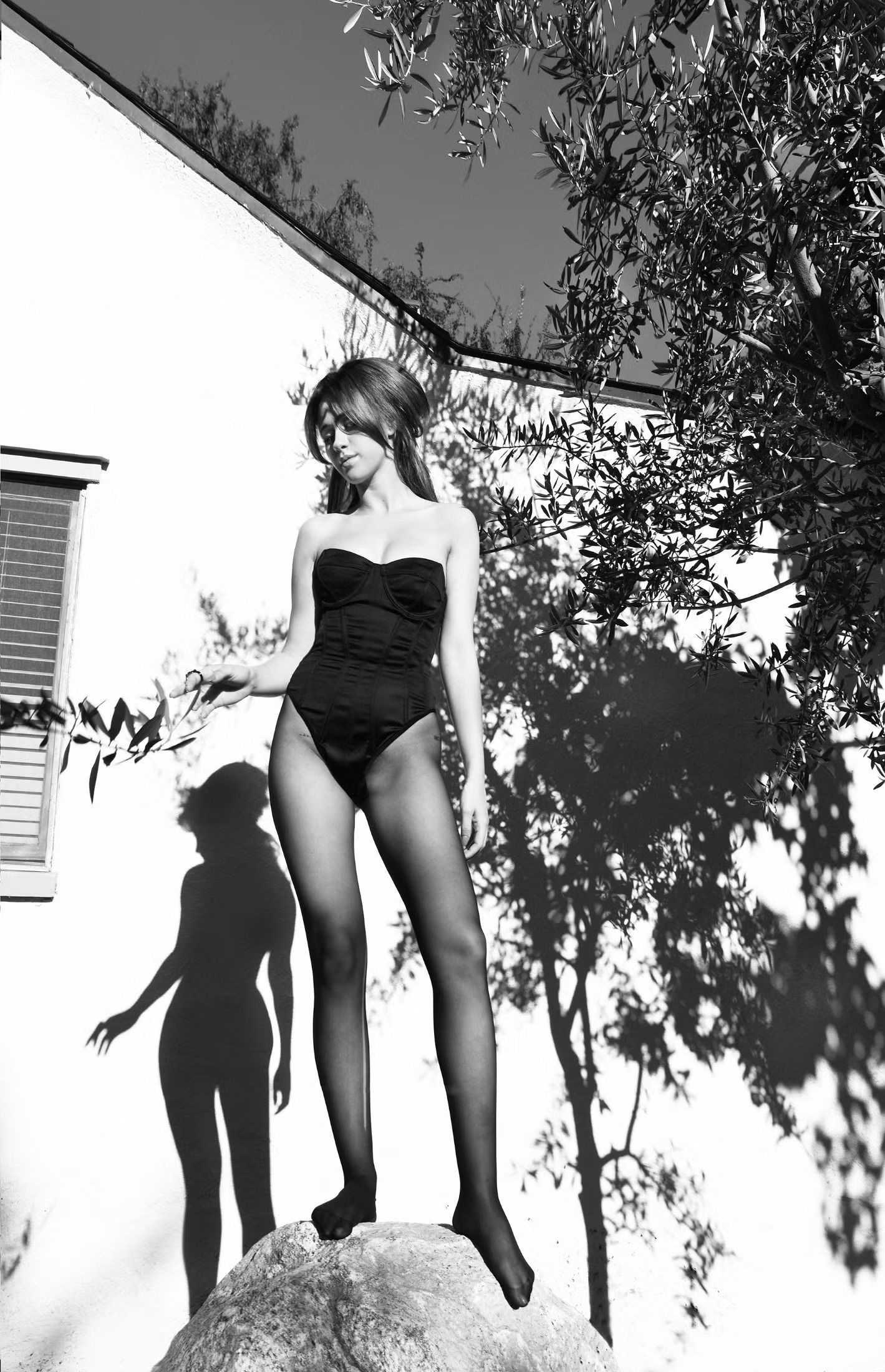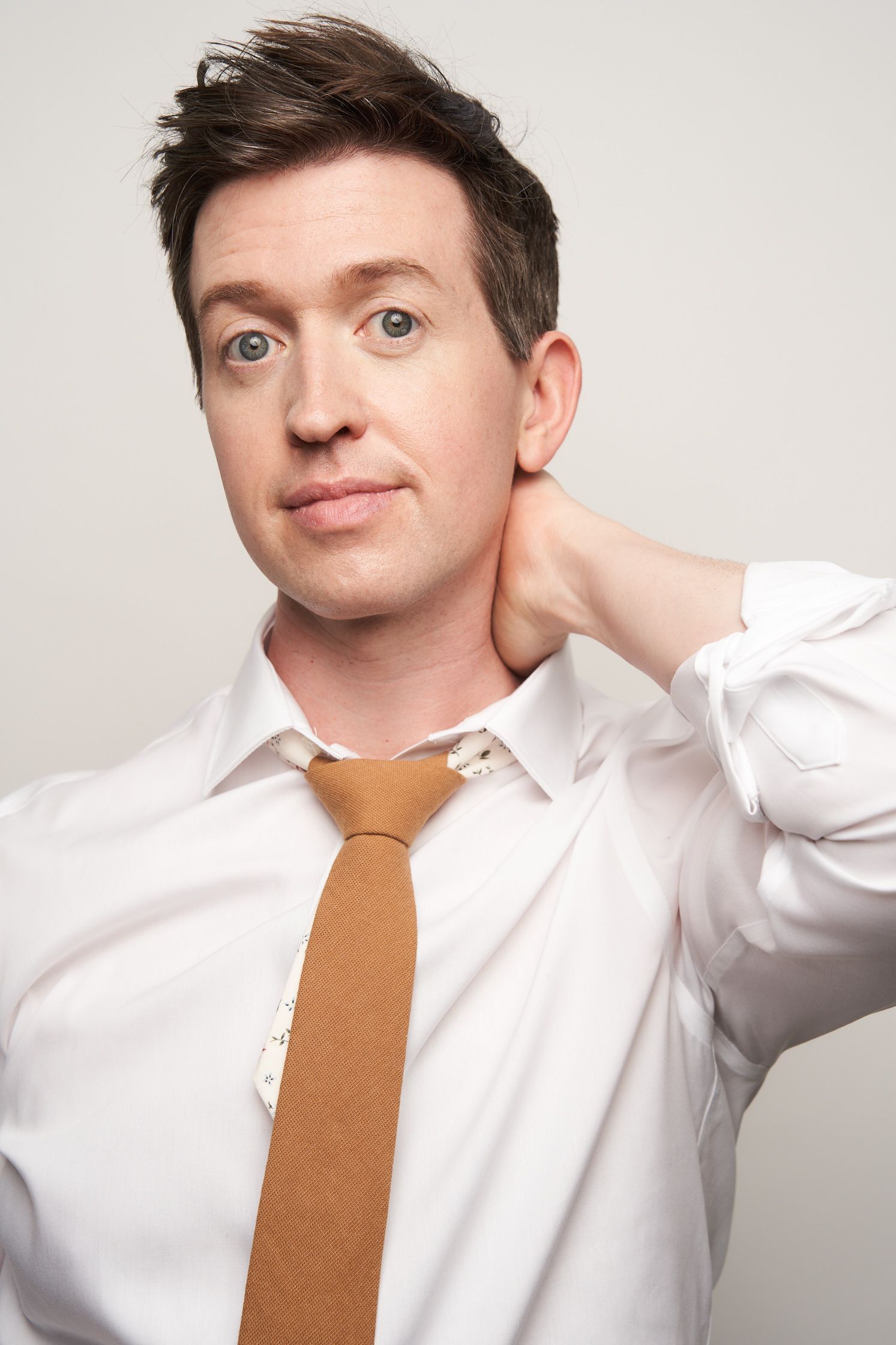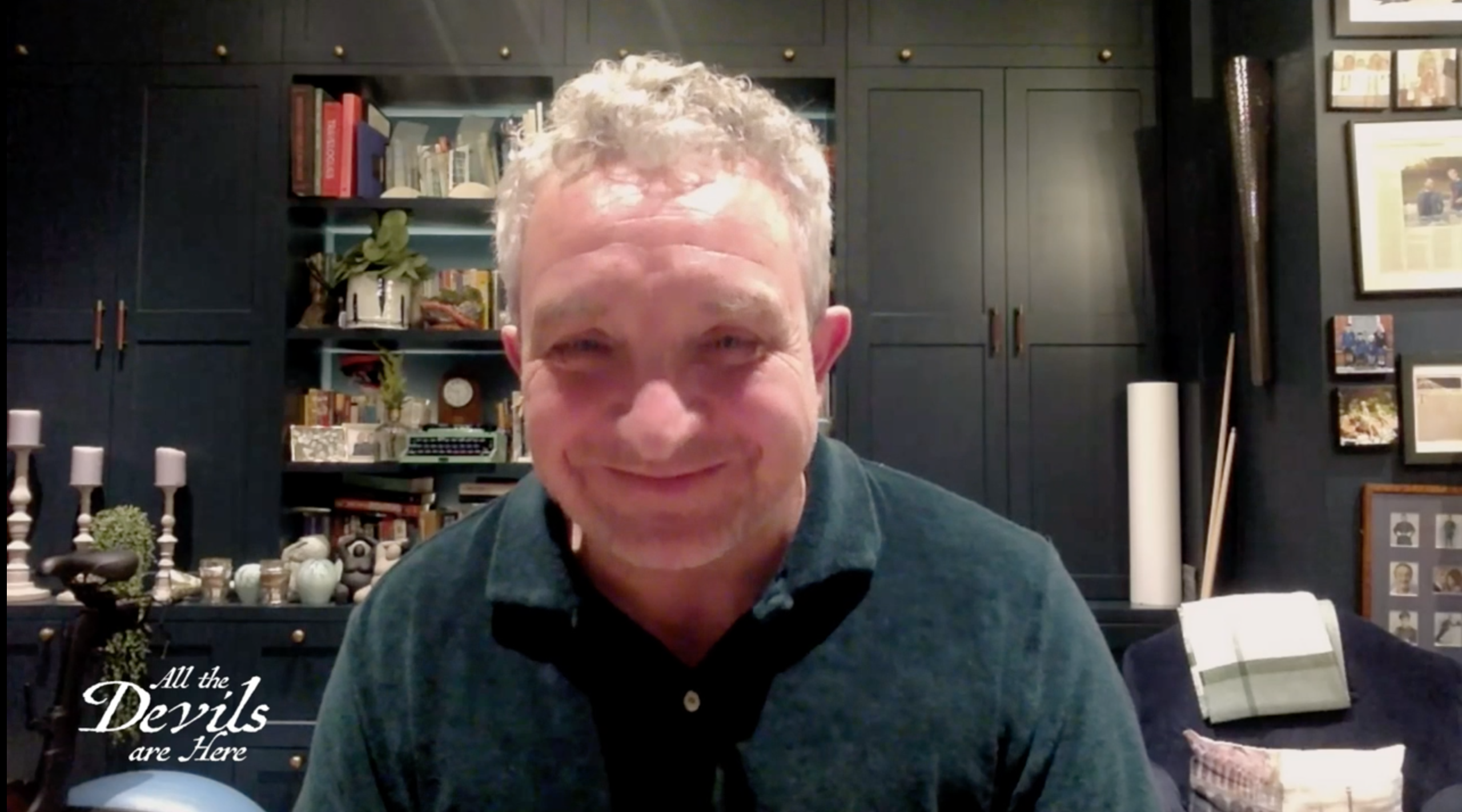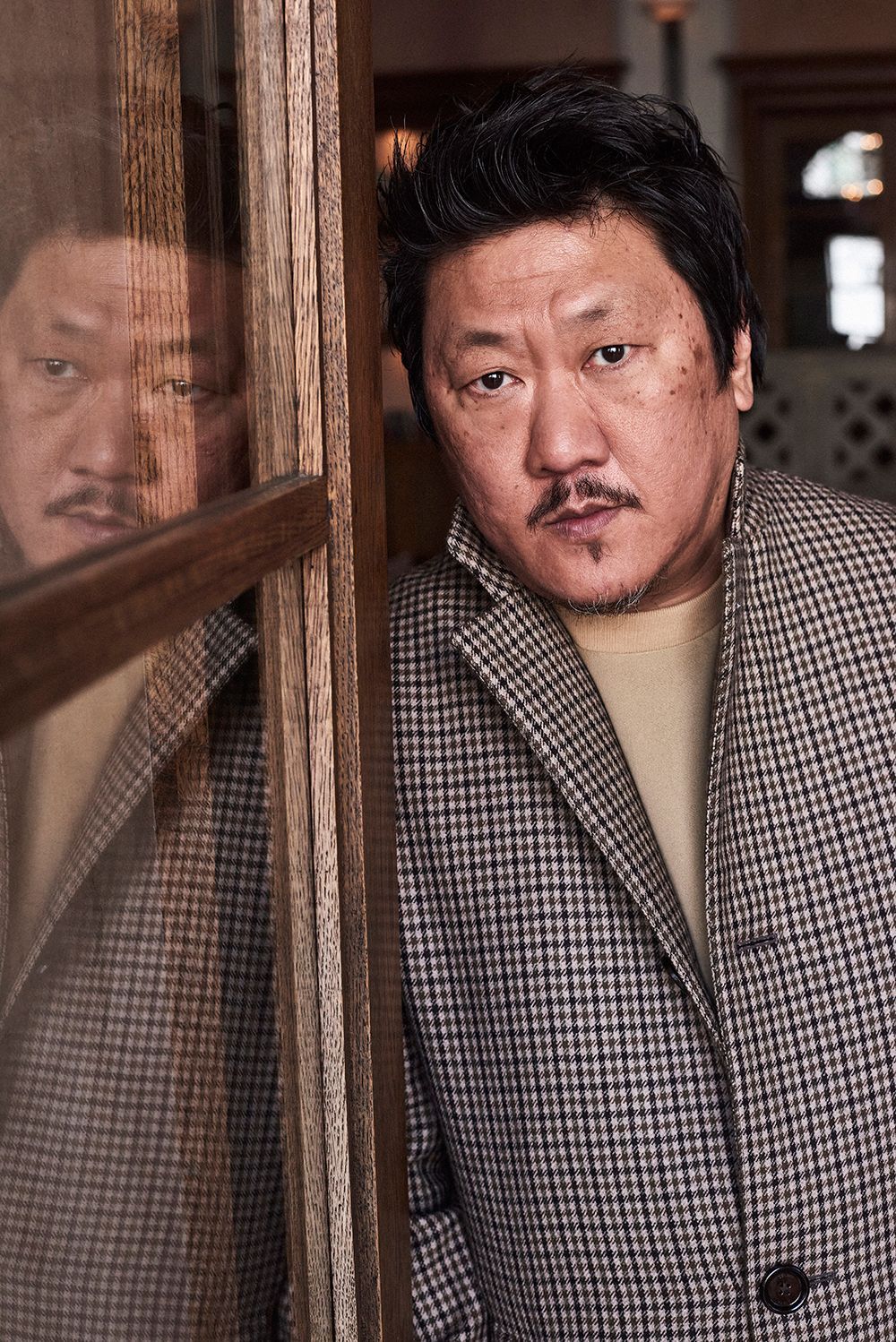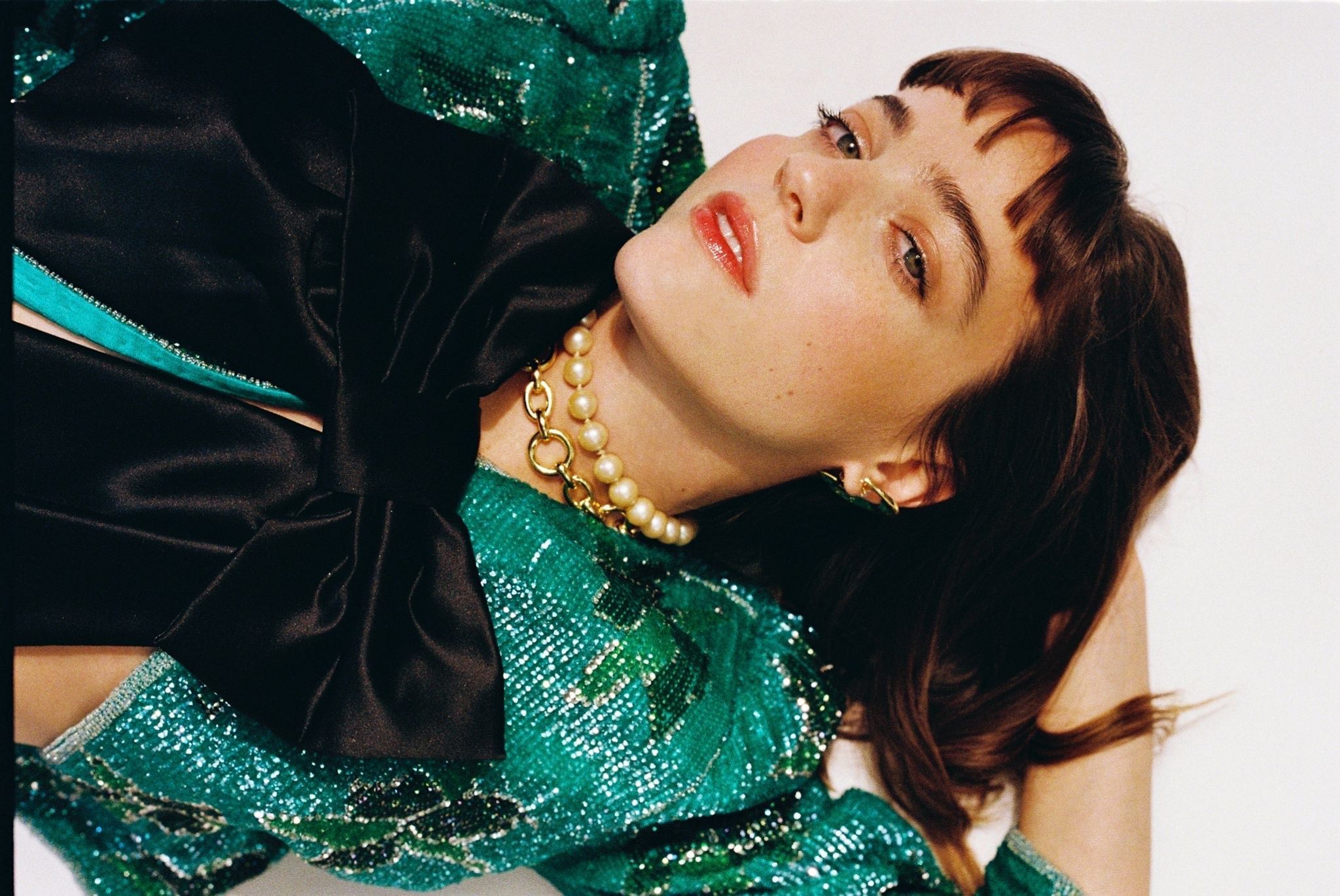Maria Bakalova has always been a force of nature. It was apparent when she fooled Rudy Giuliani as Borat’s daughter in Borat: Subsequent Moviefilm, when she tackled the slasher genre in the indie hit Bodies Bodies Bodies, and when she spoke with 1883 about championing filmmaking and filmmakers in her native Bulgaria. Now, with a starring role in the divisive-yet-incredible film The Apprentice, it’s even clearer that she’s consistently selecting roles that both entice and challenge her.
The Apprentice goes back to Donald Trump’s earlier beginnings as he tries to step out of his father’s shadow and become a real estate developer. Trump, played by the shapeshifting Sebastian Stan, becomes somewhat of an apprentice to the dubious lawyer Roy Cohn, played by Jeremy Strong. Although much of the film orbits around the men’s relationship, at its core is the dynamic Ivana Zelníčková who shakes things up for Trump and, by default, Cohn. Naturally, Bakalova brings the same dignity and empathy that she does with every character she portrays, leaning into Ivana’s upbringing and diving into her backstory to flesh out her character.
1883 Magazine’s Kelsey Barnes catches up with Bakalova to discuss playing Ivana Trump in The Apprentice, working opposite Sebastian Stan, the preparation needed for difficult scenes, and more.
This is your first nonfiction role, based on a real person. Did your approach to Ivana Trump differ from your approach to any of your past characters?
Yes and no. Yes, because I had to. There was material to look at—interviews, documentaries, books she had written, even fictional books. Having the option to see who she was as a real person is always beneficial because it brings authenticity and her reality into the portrayal. At the same time, you have to approach it similarly to both fictional and non-fictional characters — without any judgement, prejudice, or preconceived notions. You need to remain open-minded and open-hearted to explore this human being. People are colourful creatures, and she was a very colourful person. So, it’s a bit of both. You keep yourself open and let the character take over you while also doing your research to play her with respect and dignity.
You mentioned that people didn’t really know what she was like. She didn’t want to be a trophy wife; she wasn’t interested in that. The first thing we see of her is her telling him she doesn’t want his help, which I loved. Was that fiery independence apparent when you were reading the script, or did you figure that out during your research?
I think Gabriel Sherman [writer] did such a great job developing these characters. They are very rich and layered, and you can feel that while reading the script. Collaborating with Ali [Abbasi, director} and having his vision — because you’ve seen his work in “Holy Spider,” “Chili,” and “Border,” which are all very layered films — you know mixing Gabe and Ali would result in something special.
Independence is important. People have heard Ivana say things like, “Girls, you have to be strong and independent,” and remember her cameo in “First Wives Club.” But we don’t talk about this enough. When we had the chance to portray a character who was so outspoken and bold back in the ’70s, it was like, hell yeah, let’s do it! She was so open — “I’m here, I know who I am, and I’m going to demand my equality. I’m going to demand my position. If you like me, you are going to hear what I’m saying.”
On the flip side, Trump eventually says, “I feel like I’m married to a business partner,” which is quite demoralizing. I feel like a lot of women in those types of relationships, who have a degree of power, suffer from this dynamic. It’s strange because he married her because of how different she was — he literally says, “You’re not like any other woman I’ve met before.”
There were a few scenes that didn’t make the cut. I wish they had, but of course, it’s not my decision. The film would have been four hours long if we included everything. One scene, also taken from her book, shows a dinner with the whole family. It’s such a well-crafted scene, and that’s why I wish it was included. You see a very dominant father figure in Fred Trump, who orders the steaks for everyone. When it’s her turn, she says, “I’m going to have the halibut.” This scene perfectly highlights the relationship dynamic between Donald and Ivana. He was fascinated by her expressiveness and her demand for her voice to be heard, which influenced him to some degree. She even coined the phrase “You’re the Donald,” whether due to her English or intentionally meaning “You’re the man.” It helped him elevate himself.
It helped elevate him, helping him to build that confidence.
At some point, I watched a documentary that Sebastian recommended — kudos to Sebastian, he’s been a great partner from start to finish. In the documentary, people mention that her dream was to present them as a power couple. She wanted him to be more front and center, which probably didn’t work to her advantage in the end because he started believing his own press and dismissed the person who had been there from the beginning.
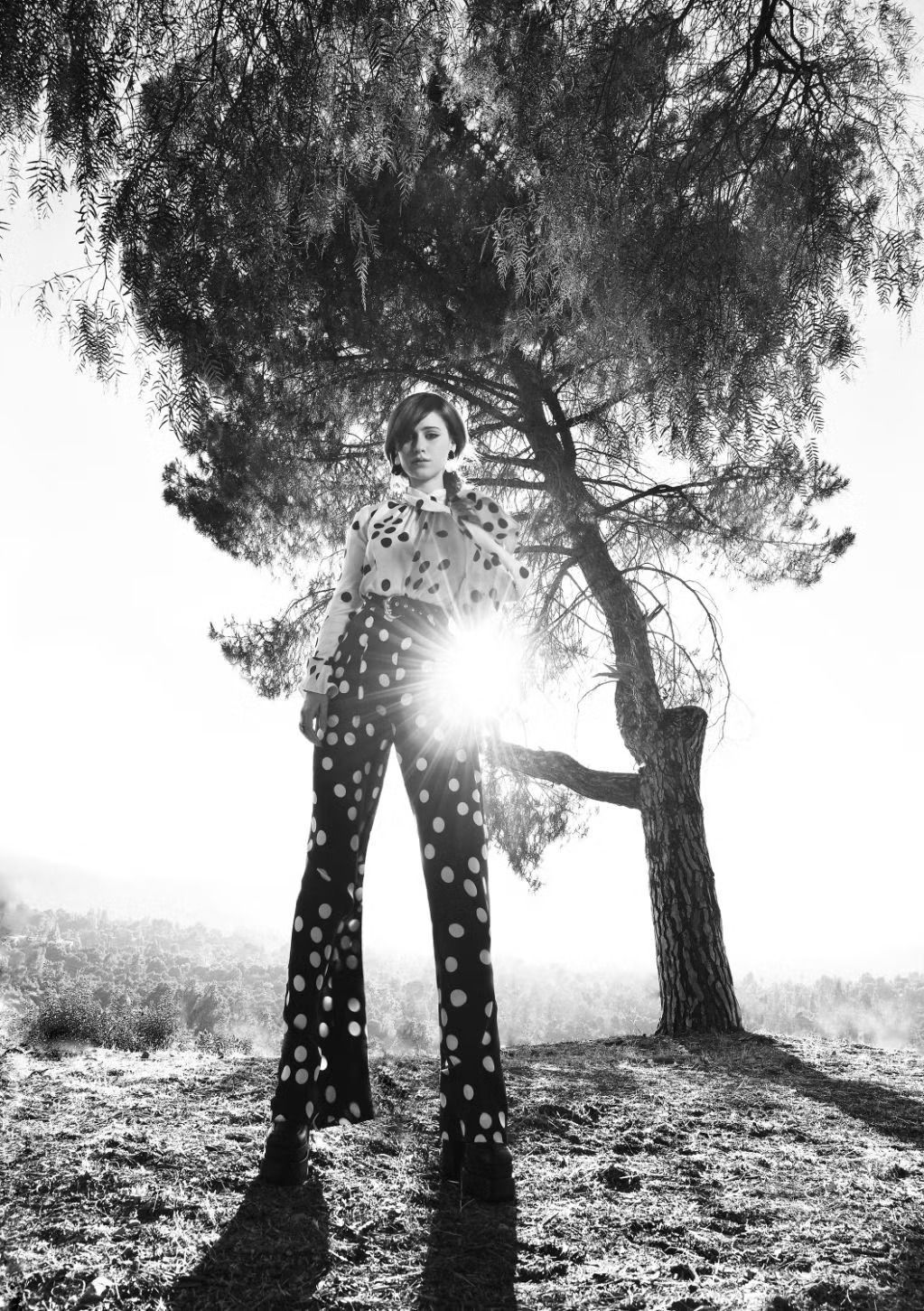
There are moments where she tries to comfort him like during the death of his brother and he completely shrugs her off, or she tries to appease him by getting a boob job and then criticises her for it. It’s scenes like those that feel reminiscent of so many relationships between high profile men and their wives.
It’s a heartbreaking experience. I truly believe, from reading her biography, the script, watching interviews, and seeing old footage, that there was real love and affection in the beginning. You see them falling for each other initially. We had a scene we tried to incorporate, where we watched them on Oprah when things were not perfect. He says, “Oh, Ivana just does whatever I tell her to do,” and she responds with, “Male chauvinist.” It shows how things deteriorated — it’s scary and sad, like a tragedy. It’s a love story that ends tragically.
It must have been interesting for you to see that breakdown during your research. It must have been a little sad, regardless of who they are and the Trump name and everything, to witness that through your preparation.
We’re talking about people, human beings, and that’s the most important story. They’re not stereotypes; they’re archetypes of people. We explored the complexity of a woman who was ahead of her time and a man in denial of his existence — Ivana and Donald. I try not to think about my assumptions because, while familiar with their faces and names, it’s their personal journeys that are more interesting. I’m glad the story takes place back in the ’70s.
The assault scene is difficult to watch but I’m glad it was included in the film to show just how much had changed between when they first met and then. You worked with intimacy coordinator Jordana Lieberman on the film. What was it like working with them?
It’s difficult to watch, to play, and to read. I wish we didn’t have to include such scenes, but when they exist in the real world, and you’re going to portray them, you have to do it properly. Do it with honour towards those who are actually experiencing such things. Even now, there’s a woman out there going through some kind of abuse, and there’s no better or worse shape or form of abuse. If something happens, you should talk about it. If you have the platform, use it to channel help to organisations and support survivors.
It takes a lot of courage for survivors to open up and talk about their experiences. When is the right time? Is it too late? Is it too early? How do you do it, especially when you have a life with somebody? As an actor, I got to work with an accent coach, an intimacy coordinator, and a stunt coordinator, which was helpful. We knew that cinematically it would be done properly and that physically it wouldn’t be dangerous because we had someone looking after us.
Jordana was incredible, and it was really good to know that I was in safe hands. I trusted Sebastian and Ali from the beginning — they were always supportive and never pressured me to do something I wasn’t comfortable with. In fact, I insisted on doing another take and another take because we wanted to portray it in a way that wasn’t vulgar. That’s not the point of the movie. It was important for the relationship context and the story. Yes, it was challenging to go through something like that, even for a scene. But as an actor, I had people I could count on, so I felt supported.
Shortly after that, there’s a scene in the car where you can see her trying to mentally prepare to perform for the cameras. Was it difficult to switch in and out of that mindset while filming?
I think that scene is even more important because it shows the consequences of such trauma and how you deal with them. How do you cope with being heartbroken? When is the right time to make a move, take a step forward, and leave this person? Once things go in that direction, there’s no going back. You have to play the game a little longer, pretending to be happy and perfect together until you’re alone and the facade drops. In private, the hurt comes through—physically, verbally, emotionally. For the cameras, you have to perform until the moment you dare to speak about it and leave the toxic situation. It’s challenging, but it’s important to show how people put on a front for the world while suffering in private. That duality is crucial to the story.
You and Ivana grew up in post-communist countries, which obviously shapes your view of the world. How do you think that helped inform your portrayal of her?
That’s why I’m grateful that Ali opened up this opportunity for people like me. It’s not only about the accent—honestly, my accent has nothing in common with hers. While both of our countries are in Eastern Europe, we don’t speak the same language, we don’t have the same alphabet, and we don’t sound the same. It’s about a mindset. Growing up in a place like Bulgaria or Czechoslovakia, you understand that you really have to work hard if you want to make a difference. If something goes wrong, there’s nobody to support you—the system isn’t there to back you up. You have to do everything in your power to succeed, and that teaches you a lot.
Because of communism, there was inflation and poverty. Even in a post-communist or post-socialist environment, transitioning to a democratic country is still a challenge. Even nowadays, Bulgaria never experienced a full communist stage, but it still had to navigate the path to independence and the freedom to express opinions. So, it’s a mindset you learn: you have to put in extra effort, you have to be the best at what you do. You might not be the best in the world, but you strive to be your best. That drive and determination informed my portrayal of her.
I remember us having a conversation about how passionate you are about uplifting film in Bulgaria, so it’s exciting to see you grow and thrive following that conversation.
Yes! We have a movie here [at the London Film Festival] called Triumph, and I’m excited to hear what you think about it.
Yeah, it’s a political satire right?
Yes, it is political satire. It’s about people who sometimes make very strange decisions on how to use power. It’s important to remind ourselves that back in the ’90s, for example, the Bulgarian army was commissioned to dig a hole underground — 400 feet deep, I think — in search of alien intelligence, literally to make Bulgaria a great country. It’s a fascinating and absurd story that reflects the odd ways power can be wielded.
At the end of our last chat, you said “At the end of the day, all that will exist after our death is the art” that you make. What do you hope people take away from the film in years to come?
The most important thing is to make people feel something, in any form. If you have a platform, talk about people, their behaviours, and how they’re influenced by others. That’s at the core of this film. It follows three people connected to the Trump family, but not the political side. It’s more about the system and the empire behind the American dream, exploring its dark side.
The film delves into the complexities of wanting to be successful and the moral dilemmas that come with it. It raises questions like, “Do I need to surround myself with certain people to achieve success?” and “What are the downsides of this?” It’s about power dynamics and relationships based on leverage and connections. Is that really necessary? So, it’s a reminder to be careful what you wish for. Every opportunity might come with a dark side. There’s always a hidden cost behind every glamorous, shiny thing.
The Apprentice is in UK cinemas now.
Interview Kelsey Barnes
Image Credits: Maria Bakalova’s 2022 1883 Cover Story
Photography Kate Garner @ Bolt Agency
Styling Janelle Miller @ A-Frame
Hair Byron Williams
Makeup Brittany Leslie
Production Angeliki Sofronas
Photography Assistants Quentin Sofio & Grace Inspace
Styling Assistants Brandon Michael Guerrero & Nik Sanchez Wong

